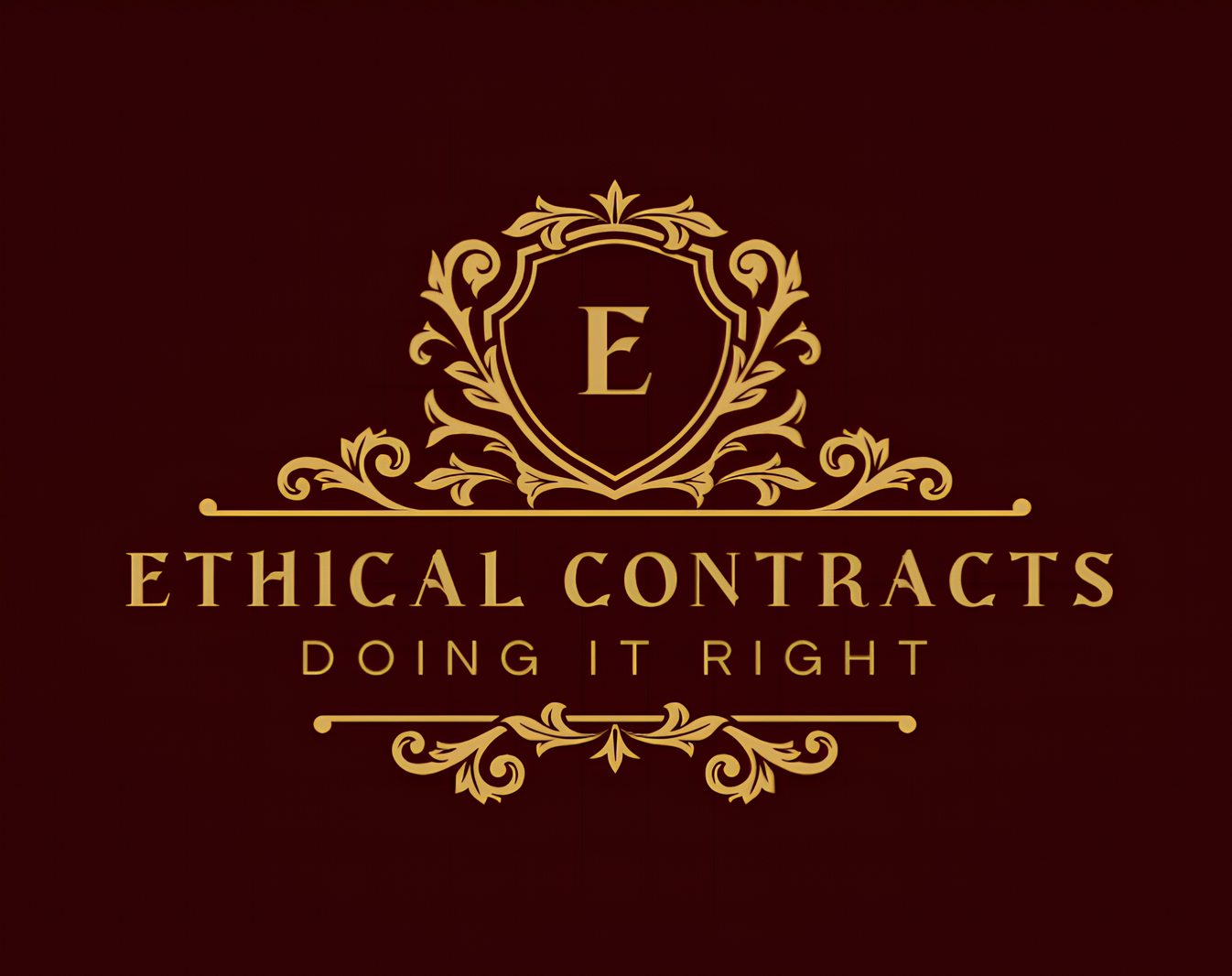
This is how I reason a proper, ethical contract must be designed and utilized. For a contract to be objective and binding, it requires these elements.
Requirements Of An Ethical Contract
Contract = A documented agreement between an offeror and offeree which contains all the following points;
1. Valuable consideration: This is the reason for the contracts creation, to facilitate a trade of value. For something to be of value, it must be considered mutually beneficial by both parties.
2. Offer and acceptance: An offer of trade of one type of value for another must be made & accepted.
3. Full disclosure: There must be transparency and clear terms and no ambiguity, equivocation, double speak or deception. The offeror has a duty to ensure the offeree understands all the details. The terms must be as simple as possible. The offeree has a duty to fully disclose their capacity.
4. Equitable intentions: The offeror would sign the contract if in the offerees position. The intentions on both sides should be honest and respectful.
5. Conflict & dispute resolution: There should be an objectively moral and equitable process for resolving disputes and solving conflicts.
6. Accountability & enforceability: Parties must take responsibility for their commitments, breaches & fraud. They must agree that violations of the terms can be enforceable, including by 3rd parties in the pursuit of justice.
7. Opening and closing conditions: The contract must have opening and closing conditions. It must outline the duties, responsibilities and process of starting and ending the contract.
8. Access: Both parties must have a copy of the contract (documented) and if one party loses their copy, the other party must provide a copy on request.
9. Mutual Consent: Both parties agree voluntarily without coercion or deception.
10. Capacity A: Both parties must have the capacity to enter the contract. Not drunk, drugged, hypnotized, mind controlled, under age, retarded, extremely ignorant, experiencing emotional hardship, unauthorized etc.
Capacity B: Both parties must have the capacity to fulfill the contract. Appropriate knowledge, skill, funds, materials etc.
11. Lawful: The contract cannot be in violation of objective morality or objective law.
12. Identity & ultimate individual liability: The contract must be between two parties with identity and there must be a named individual with ultimate liability on both sides.
- In some instances, a contract, trade or agreement may require a meeting of the minds, the ability to negotiate and to make amendments.
- Confidentiality: Sensitive information must be protected in applicable contexts.
- Succession Clauses: Stipulations that if a named individual leaves, the contract must be renegotiated with the new responsible parties.
- Indemnification Clauses: Specificity of circumstances for liability.
- Some contracts may include a cooling off period. This is not always required and must be stipulated.
- Some contracts, such as clickwrap software agreements don't offer the ability to negotiate or make amendments.
- Some contracts may be rolling, as in they are constantly updating their terms. If this is the case, it must be clear that the contract is subject to update and that new consent must be granted before being bound by the updated terms. Either party has power to terminate if they do not agree with the updated terms.
- Some trades/contracts may require a deposit. If the terms of the deposit are not negotiated and the depositor/oferee changes their mind and asks for a refund, it is at the discretion of the offeror if the refund is granted.


